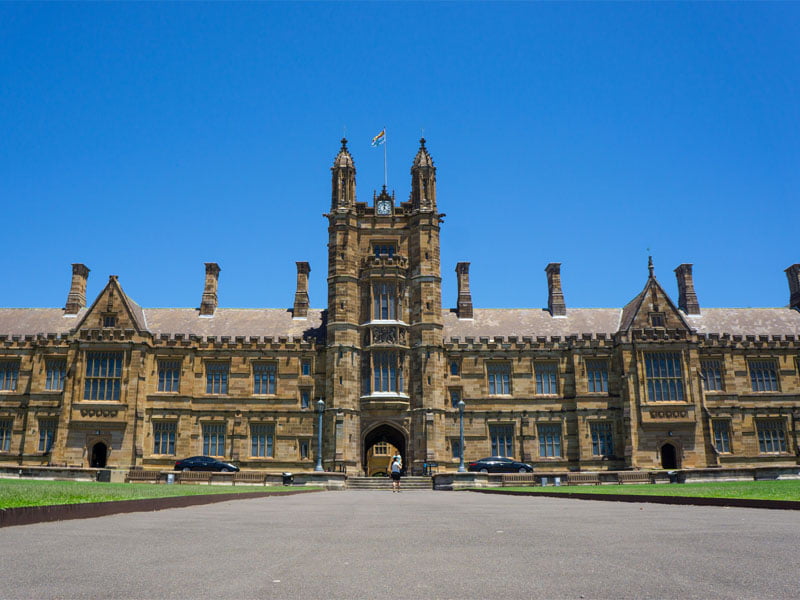Australia’s university research sector has been given a $1 billion pandemic survival injection in the budget while a new government study will scope out the potential of a translational research fund.
The budget also packed in new funding to support STEM skills for women.
Australia’s university sector has been hit hard by the pandemic as once lucrative income sources from foreign student fees dried up.
Like the CSIRO, which scored a pandemic related $459 million four-year boost to its finances, universities have been handed a $1 billion jolt in 2022-2021 to protect sovereign research capability from COVID-19 induced revenue losses.

The government is counting on a post pandemic recovery that includes a pile of twenty-first century job creation and the $1 billion in new research funding to the university sector in 2020-21 is there to help avoid lasting damage to the Australian researcher efforts, according to budget papers.
Prior to the budget, the government had already announced a $1.3 billion Modern Manufacturing Initiative that will offer co-investment grants that includes the Manufacturing Collaboration Stream which is aimed at large research projects to support business-to-business and business-to-research collaboration and the Manufacturing Translation Stream, looking at commercialising and investment in non-R&D innovation.
Industry groups have been agitating for a Research Translation Fund, modelled on the successful Biomedical Translation Fund or the Medical Research Future Fund.
In the budget, the government announced a scoping study of potential options to accelerate the translation and commercialisation of university research, one clear option would be a translational research fund
Science & Technology Australia (STA) which represents over 80,000 Australian scientists and technologists has been pushing for such a fund which it says would boost Australia’s industry innovation capability.
“We’ve been on the case for quite some time for a research translation fund that we see as really important vehicle,” said STA chief executive Misha Schubert who is hopeful the scoping study could support a fund announcement in the May 2021 Budget.
“The study will enable the STEM sector and others to make our best case to government to show there is such strong potential for job creation and income generation for the country,” said Ms Schubert.
The Australian Technology Network of Universities, a peak body representing Curtin University, RMIT University, the University of South Australia and the University of Technology Sydney, has also backed calls for a Research Translation Fund.
Ms Schubert was also supportive of the $1 billion in university research funding.
“That is genuinely a billion dollars in new money confirmed. It was smart strategy to do this before the pandemic and even smarter strategy to do it now. If the pandemic has taught us anything, it’s that science capability is crucial to safety, security and economic strategy for the country,” Ms Schubert said.
The Budget also confirmed a $41.6 million package over four years to establish a Strategic University Reform Fund. This fund would foster greater collaboration between universities and their local communities and businesses.
Meanwhile, the Budget had increased support for STEM oriented training for women inside a $240 million package aimed at boosting women’s participation in the workforce and financial independence in the wake of the coronavirus pandemic.
These measures include:
- $47.9 million over four years from 2020-21 to increase grants for the Women’s Leadership and Development Program, including funding for the Academy of Enterprising Girls and Women Building Australia.
- $35.9 million over five years from 2020-21 (including $6.5 million in 2024-25) to increase the number of co-funded grants to women-founded start-ups under the Boosting Female Founders Initiative and to provide access to expert mentoring and advice for women entrepreneurs.
- $25.1 million over five years from 2020-21 (including $3.0 million in 2024-25) to establish a Women in Science, Technology, Engineering and Mathematics (STEM) Industry Cadetship program to support 500 women working in STEM industries to complete an Advanced Diploma through a combination of study and work-integrated learning experiences.
“Official data shows women’s job losses in STEM due to the pandemic are occurring at a greater rate than job losses for men in STEM. So these additional measures to encourage more women into jobs in STEM is very welcome,” said Ms Schubert.
For a deep dive into this year’s federal budget with the InnovationAus team and special guests, register now for InnovationAus’ Budget Insider 2020 webinar today Wednesday October 8th at 17:30. Registrations close at 15:00.
Do you know more? Contact James Riley via Email.
